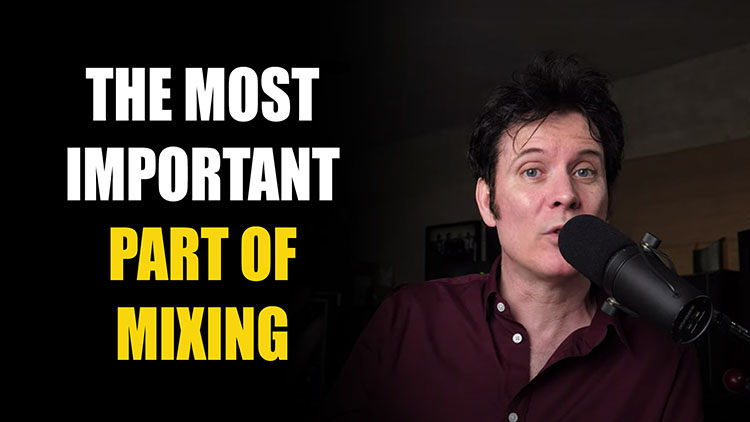Preparing your tracks for Mixing is not only the Most Important Part of the Mixing Process it is part of the actual Mixing!
When on the tracks on your own, as most people do, without an assistant, you are effectively mixing! You are getting inside of the tracks, understanding them and seeing how they release to each other. If it’s a track you haven’t produced you’ll get to understand the Artist/Producer’s vision!
We also have a cheat sheet you can download so you can keep these tips on hand all the time! Click here to download the Mix Preparation Cheat Sheet!
1. THE most important thing is to listen to the track before you start to do anything! Having a rough or a previous mix will tell you if you’re missing tracks or just as importantly whether you have the right tracks! Often the wrong session has been uploaded and the arrangement may have changed! Having the latest rough/mix is a fail safe and could save you hours of frustration.
2. The more time you spend preparing, the less time you’ll spend chasing your tail making bad mix decisions. Great Mix Prep = Great Mixing!
3. People who mix fast are able to do this because their tracks are very organised. They may not be better than you at mixing, they just have more time to make great decisions because organisation and editing has been done in advance.
4. If you are mixing other people’s work, be mindful that the bussing they’ve created could be integral in the sounds you are hearing.
5. You do NOT have to create a new session. Professional mixers now ask for the complete session! Gone are the days when mixers wanted Pro Tools Only Sessions to look like tape! All professionals understand that virtual instruments, amp sims and plugin effects in a session are just as important as the organically recorded tracks! They ARE the sound of the tracks!
6. Label your tracks properly. You may have been working fast, either not naming a track at all or naming it something simple like ‘Gtr’, which is fine in the moment. However, here we are a week later and there’s 14 tracks called ‘Gtr’! If one is the verse, call it ‘Verse Gtr’, Stereo Pair in the Chorus call them ‘Ch Gtr L’ and ‘Ch Gtr R’. Label the track effectively so you can go back at any time and tweak the mix easily.
7. Gain staging is important. However, don’t just look at the level of the tracks, if an instrument has plugins that are integral to it, then adjusting the track gain because it ‘looks’ hot is irrelevant and will completely change the settings the Producer/Engineer or Artist has put on it. Occasional peaks, especially ones of only a few samples are harmless compared with readjusting the relationship of the track going through some serial compression that shapes the sound by adding deliberate saturation etc.
8. DO look for areas that seem overly quiet in a vocal. I often gain words that are extremely low in a vocal and this is a great time to do it!
